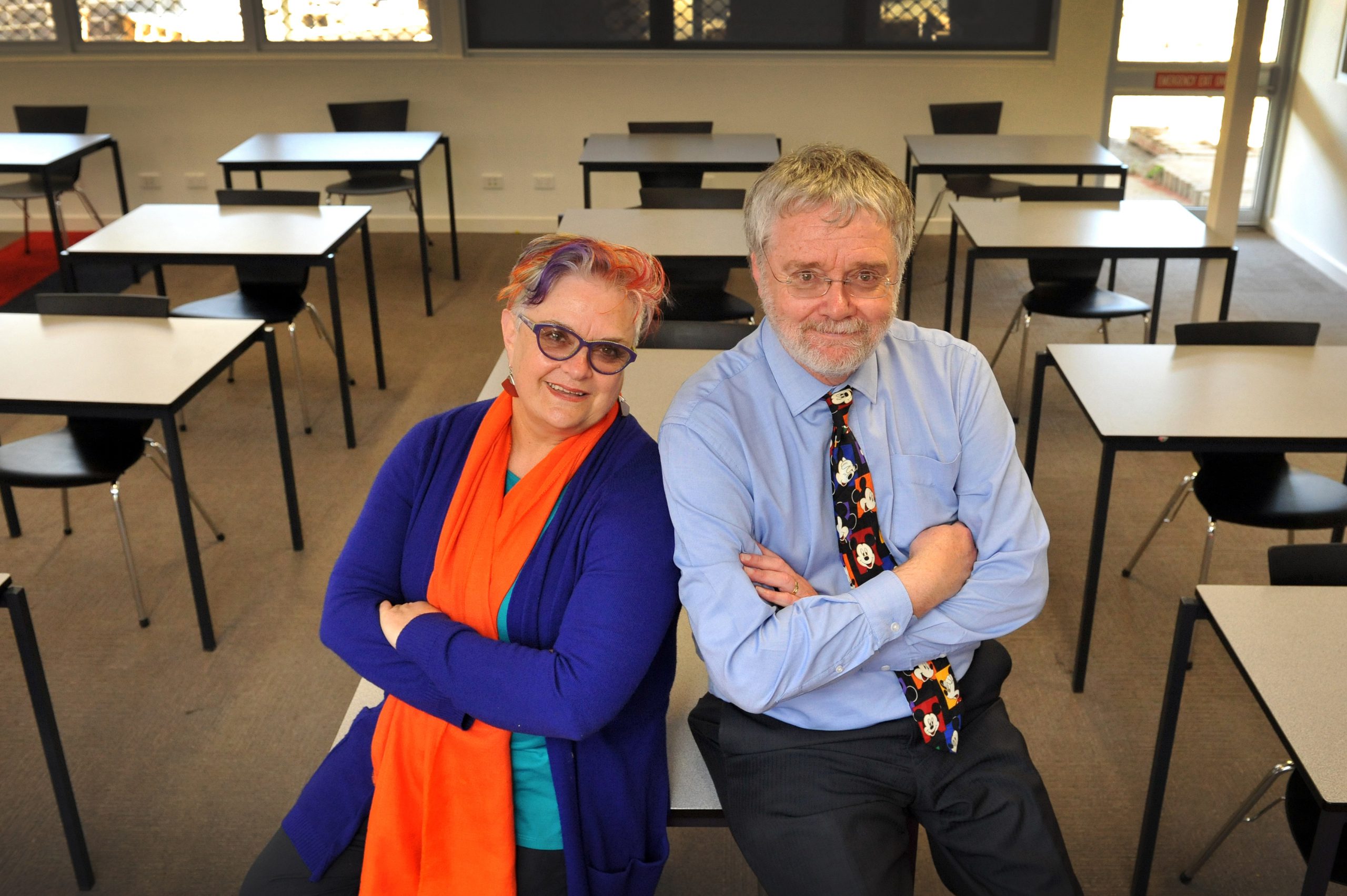Anne English can’t imagine walking down the street without being recognised.
A combined 78 years of teaching between herself and husband Gerard means there are two generations of former students across the Latrobe Valley keen to chat.
“We go into a restaurant and more often than not we’ll know the chef, we’ll know somebody who’s front of house,” Anne said.
“I think it’s one of the gifts that we have received – that interaction with people that we’ve taught.”
Gerard said the fact former students wanted to share their stories was “terrific payback”.
“There’s a certain satisfaction that you get when someone rolls along and they’ve got two little kids in tow and say ‘hey this is what we’re doing now and this is where we’re at’,” he said.
“It’s not a case of ‘oh God, it’s Mr and Mrs English, we’ll cross the road now and pretend we didn’t see them’.”
This morning the pair will enjoy their first day of retirement after finishing up at Lavalla Catholic College, where they spent much of their teaching careers.
“It’s exciting in one way and in the same breath I would say it’s a little scary,” Gerard said.
“Our work’s a very big part of who we are and that’s not going to be there now.
“It’s coming to a decision that we’ve done enough, and someone else can have a turn for a while.
“I still enjoy it, I’m still effective, so it’s a good time to stop.”
For Gerard, retirement will mean learning how to hit a golf ball again, while Anne plans to devote more time to volunteering.
“We’ve worked together a lot, so retirement’s not a time when we’re going to have to learn to live with each other,” she said.
While they have worked side by side at Lavalla for many years, their approaches to teaching have been markedly different.
“I’ve been known to call a spade a spade,” Anne said.
“I tend to be fairly direct and I’ve been a maths teacher and now a careers coordinator, so I tend to look at the world around me and see what I see and then just talk to kids like they’re real people.”
English and literature teacher Gerard described his teaching style as “unorthodox” with “a touch of the theatrical”.
“I guess if I wanted to be remembered for how I taught, it would be someone who was passionate about it and someone who wanted the kids to see the importance of their own learning. That they actually took a bit of ownership of the whole thing,” he said.
“I always liked the notion that if you treated them with a bit of respect, you got bucket-loads back.”
The couple said socialising with their close group of friends who weren’t teachers, helped them through some of the more trying times in the profession.
“They’re the first to remind you how privileged teachers actually are. It stops you from getting precious,” Anne said.
“There’s this constant feeling of gratefulness and extraordinary privilege that we’ve had.”
In recent years they have become valued mentors to younger staff.
“You start off asking a lot of people a lot of questions and then one day somebody comes up and says to you ‘how do I deal with this?’ or ‘how do I do this?’ and you look behind to see who they’re talking to, because, hang on, they’re asking me,” Anne said.
Gerard said he believed from generation to generation, the core principles of the profession would always remain.
“The more things change in education, the more they come back to where they were.
“But our core business is still people. No matter what technology you introduce, no matter whether everyone’s on iPads or they’ve all got their laptops, it’s still about that interaction between teacher and student and I don’t think that’s ever going to get replaced.”
The pair said the introduction of laptops in learning had improved efficiency, particularly with corrections, but the effects of increased mobile phone use by students was worrying.
“They have a completely different way of thinking now,” Anne said.
“They’re not critical enough and that’s a worry.
“I do wish that every once in a while they’d put their texting away and go and talk to a person.”
“Texting, don’t get me started on that, because they spell like they text,” Gerard said.
Anne said one of the most “exciting” developments in her time was the introduction of the Victorian Certificate of Applied Learning, a practical alternative to the Victorian Certificate of Education.
“Kids used to be stuck in classrooms using a narrow set of learning strategies and if it didn’t fit, well that was bad luck, they could leave school at 14 and get a job,” she said.
“Now when we have kids that things don’t click for, there’s other ways that they can get involved. So the number of kids that slip through the cracks is much reduced.”
For the aptly-named Mr English, each new class has come with not-so-new remarks.
“If I had a dollar for every time a kid came in and said ‘how funny’s that, your name is English and you teach English’, I’d have retired 25 years ago,” he said.
This, along with corrections and report-writing are aspects of the gig he won’t miss.
But the pair’s final reflection on their time is one of immense gratitude for the opportunity.
“It hasn’t been a real struggle or anything like that, it’s been a privilege to work with these people,” Gerard said.
“What you put in with kids, you get it back ten-fold anyway. So that’s why I reckon we’re pretty lucky.”











